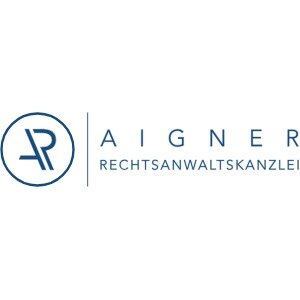Best Mining Law Lawyers in Linz
Share your needs with us, get contacted by law firms.
Free. Takes 2 min.
List of the best lawyers in Linz, Austria
About Mining Law in Linz, Austria
Mining Law in Linz, Austria, is the body of laws and regulations that govern the exploration, extraction, and management of mineral resources within the region. Linz, located in the state of Upper Austria, is subject to Austrian federal mining laws while also adhering to regulations set and enforced at the provincial and municipal levels. The Mining Act (Mineralrohstoffgesetz or MinroG) provides the primary legal framework for all mining activities throughout Austria, including Linz. The law aims to balance economic interest in resource extraction with environmental protection, workplace safety, and community interests.
Why You May Need a Lawyer
Mining activities can be legally complex and are subject to stringent regulation. If you are considering starting a mining project or are already involved in mining operations in Linz, there are several reasons why you might require legal assistance. These can include navigating the licensing and permit process, understanding environmental obligations, handling disputes with landowners or the government, dealing with compliance issues, or defending against administrative penalties. Additionally, legal help is vital in negotiating contracts, protecting intellectual property, ensuring health and safety compliance, and understanding your rights or obligations if affected by mining activities as a third party.
Local Laws Overview
In Linz, mining operations are primarily governed by Austria’s Mining Act (MinroG) along with various federal, state, and municipal by-laws. The key aspects of mining law in this jurisdiction include:
- Licensing and Permits: All mining activities require appropriate permits and licenses, usually issued by the mining authority after a detailed assessment process.
- Environmental Protection: Environmental Impact Assessments (EIA) are often mandatory for mining projects to ensure sustainable practices and minimal ecological disruption.
- Land Use: Mining rights may intersect with private land ownership. The law outlines processes for negotiation and compensation when mining activities affect private property.
- Safety Regulations: Operators must adhere to strict health and safety standards to protect workers and the general public.
- Public Involvement: Austrian law provides for public participation in permitting processes, especially relating to environmental and land use matters.
Frequently Asked Questions
What is considered a mining activity for legal purposes in Linz?
Mining activity includes the exploration, extraction, and processing of mineral resources found underground. This covers metals, industrial minerals, and some aggregate materials.
Do I need a permit to mine on private land?
Yes, a mining permit is required even on private land. The owner of minerals is typically the state, and specific applications and permissions are necessary irrespective of land ownership.
Who issues mining permits in Linz?
Permits are generally issued by the mining authorities under the Federal Ministry of Finance. Local authorities may also play a role, especially for environmental reviews and land use planning.
What are the key environmental considerations?
Mining projects must comply with environmental protection laws, including carrying out Environmental Impact Assessments (EIA) to identify and mitigate negative effects on land, air, and water.
How are landowner rights protected?
While mineral rights typically belong to the state, landowners have rights to compensation and must be involved in negotiations before mining can proceed on their property. Disputes can be resolved through legal proceedings.
What if a dispute arises between a mining company and a local resident?
Disputes may be handled through administrative procedures, mediation, or court proceedings depending on the nature and severity of the issue.
Are there any occupational health and safety rules?
Yes, mining companies must comply with specific occupational health and safety regulations to ensure the welfare of their workers. These are strictly enforced and subject to inspection.
How long does the permitting process usually take?
The permitting process can be lengthy and depends on the complexity of the project and the findings of environmental and land use assessments. It often takes several months or even years.
Are there special tax or royalty obligations for mining companies?
Yes, mining operators are subject to royalties and specific taxation frameworks based on production volumes or profits. Compliance with tax law is strictly monitored.
Can foreign companies obtain mining rights in Linz?
Foreign companies may apply for mining rights, but must meet the same regulatory requirements as domestic firms, including environmental and safety standards.
Additional Resources
For more in-depth information or support, the following resources may be helpful:
- The Austrian Federal Ministry of Finance (BMF) - responsible for mining regulation and oversight
- Oberösterreichischer Landesregierung (Upper Austrian State Government) - provincial authority for environmental and land use matters
- Austrian Chamber of Commerce (Wirtschaftskammer Österreich, WKO) - provides industry support and legal advice
- Local Bar Association (Oberösterreichische Rechtsanwaltskammer) - can help you find a qualified mining law attorney
Next Steps
If you need legal assistance in mining law in Linz, Austria, start by gathering all relevant documents related to your inquiry such as land titles, permits, correspondence with authorities, and environmental reports. Contact a licensed attorney specializing in mining law to discuss your case. They can help you understand the regulatory environment, represent your interests before authorities or the courts, and ensure you comply with all necessary obligations. Consult local government offices and regulatory bodies for additional advice or clarification on the permitting process or compliance issues.
Lawzana helps you find the best lawyers and law firms in Linz through a curated and pre-screened list of qualified legal professionals. Our platform offers rankings and detailed profiles of attorneys and law firms, allowing you to compare based on practice areas, including Mining Law, experience, and client feedback.
Each profile includes a description of the firm's areas of practice, client reviews, team members and partners, year of establishment, spoken languages, office locations, contact information, social media presence, and any published articles or resources. Most firms on our platform speak English and are experienced in both local and international legal matters.
Get a quote from top-rated law firms in Linz, Austria — quickly, securely, and without unnecessary hassle.
Disclaimer:
The information provided on this page is for general informational purposes only and does not constitute legal advice. While we strive to ensure the accuracy and relevance of the content, legal information may change over time, and interpretations of the law can vary. You should always consult with a qualified legal professional for advice specific to your situation.
We disclaim all liability for actions taken or not taken based on the content of this page. If you believe any information is incorrect or outdated, please contact us, and we will review and update it where appropriate.









